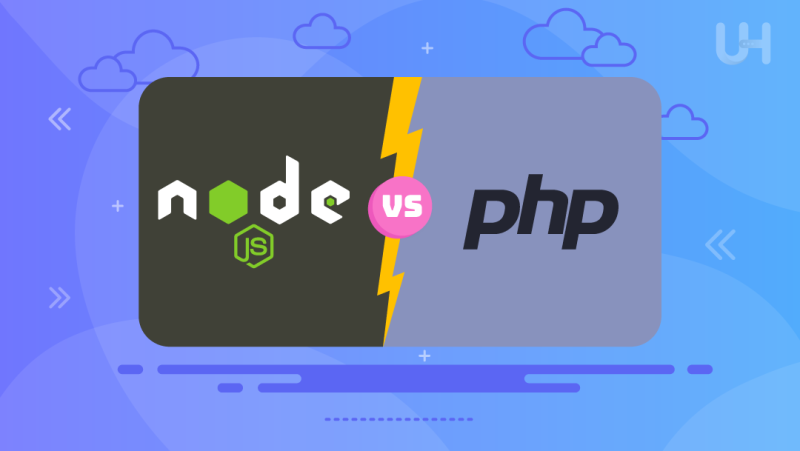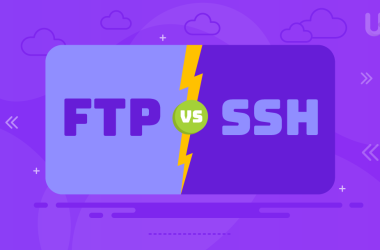Selecting the right backend technology is important for the success of any software project. But with so many options out there, it can feel overwhelming to choose the right one. That’s where we come in! In this blog, we will compare two popular backend tools: Node.js vs PHP. They’re like different tools in a toolbox, each with its own strengths and weaknesses.
Whether you’re just starting out or thinking of making a change, we are here to help you figure out which one is best for your project.
What is Node.js?
Node.js is a popular open-source, server-side JavaScript runtime environment. In simpler terms, it’s a platform that allows developers to run JavaScript code on the server side rather than just in web browsers. This means you can use JavaScript to build the backend of your applications, handling tasks like processing data, handling requests, and communicating with databases.
Key Features and Advantages
One of the key features of Node.js is its event-driven, non-blocking I/O model, which allows for high concurrency and scalability. This means Node.js can handle many requests simultaneously without getting bogged down. Additionally, Node.js has a large ecosystem of third-party libraries and packages available through the Node Package Manager (NPM), making it easy to extend and customize your applications.
Other advantages of Node.js include its fast performance, thanks to its V8 JavaScript engine, and its ability to easily create real-time applications, such as chat applications or streaming services, using technologies like WebSockets.
Use Cases and Popular Applications
Node.js is well-suited for building a wide range of applications, from simple shared hosting servers to complex, real-time applications. It’s often used in web development for creating APIs (Application Programming Interfaces), handling data-intensive applications, and building microservices architectures.
Some popular applications built with Node.js include:
- Netflix: Uses Node.js for its backend services to handle millions of streaming requests.
- PayPal: Utilizes Node.js for its high-performance, low-latency payment processing services.
- LinkedIn: Employs Node.js for its mobile backend services, improving server-side performance and scalability.
What is PHP?

PHP, which stands for Hypertext Preprocessor, is a widely used open-source server-side scripting language that is specifically designed for web development. It’s often embedded into HTML to add dynamic website features, such as processing form data, generating dynamic content, and interacting with databases.
Key Features and Advantages
One of the key features of PHP is its simplicity and ease of use, making it accessible to developers of all skill levels. It has a large and active community of developers, which means there are plenty of resources and support available for PHP development.
PHP offers compatibility with different web servers and operating systems, making it a versatile choice for building web applications. Additionally, PHP provides built-in support for working with databases, including MySQL, PostgreSQL, and SQLite, making it well-suited for building database-driven web applications.
Use Cases and Popular Applications
PHP is commonly used for building dynamic websites and web applications, ranging from setting up personal blogs to large-scale e-commerce platforms with e-commerce hosting. Some popular applications built with PHP include:
- WordPress: The most popular content management system (CMS) in the world. WordPress is built primarily with PHP.
- Facebook: Although Facebook has transitioned to other technologies for its front end, its back end was initially built using PHP.
- Magento: An open-source e-commerce platform built with PHP, known for its flexibility and scalability.
Ready to Elevate Your PHP Projects?
With Ultahost, you’ll enjoy lightning-fast performance, rock-solid reliability, and unparalleled scalability. Our cutting-edge infrastructure is optimized for PHP applications, ensuring seamless deployment and effortless management.
Key Features Comparison of Node.js vs PHP
Here are a few key differences of Node.js vs PHP:
Syntax and Language Features
Node.js and PHP have distinct syntaxes and language features. Node.js uses JavaScript, which is known for its asynchronous and event-driven programming model. This allows for non-blocking I/O operations, making it well-suited for handling concurrent connections and real-time applications.
PHP, on the other hand, uses a more traditional synchronous programming model, where each request is processed sequentially. While both languages have their own syntax conventions and features, developers familiar with JavaScript may find Node.js syntax more intuitive, while those with a background in languages like C or Java may prefer PHP’s syntax.
Performance and Scalability
In terms of PHP vs Node.js performance, both have different strengths and weaknesses. Node.js is known for its high performance, particularly in handling I/O-bound tasks and real-time applications. Its event-driven, non-blocking I/O model allows it to handle thousands of concurrent connections efficiently, making it ideal for applications that require high scalability and responsiveness.
PHP, on the other hand, may not be as performant as Node.js for handling large volumes of concurrent connections due to its synchronous nature. However, PHP can still offer good performance for many web applications, especially when combined with caching mechanisms and server optimization techniques.
Speed and Ease of Use
Node.js and PHP offer different development experiences in terms of the need for speed and ease of use. Node.js is known for its fast development cycle, thanks to its lightweight and flexible nature. Developers can quickly prototype and repeat applications using tools like npm and Express.js.
PHP also offers a rapid development experience, particularly for building web applications and content management systems. Its simplicity and ease of use make it accessible to developers of all skill levels, allowing for quick development and deployment of web projects.
Security Considerations
When it comes to security, both Node.js and PHP have their own set of considerations and best practices. Node.js applications may be vulnerable to certain types of malware attacks. However, Node.js offers built-in security features, such as the Node.js Security Working Group and npm audit, which help identify and mitigate security vulnerabilities in dependencies.
PHP applications may also be susceptible to security vulnerabilities, such as SQL injection and cross-site scripting (XSS) attacks. However, PHP offers security measures like the PHP Security Response Team and the PHP Security Advisories Database.
PHP or Node.js: Which is Better?
Factors to Consider
- Project requirements: Understand the specific needs and goals of your project, including functionality, scalability, and performance requirements. Consider factors such as data handling, real-time capabilities, and integration with other systems.
- Team expertise: Assess the skill set and familiarity of your development team with both Node.js and PHP. Choose a technology that aligns with your team’s strengths and expertise to ensure efficient development and maintenance.
- Performance needs: Determine the expected workload and performance demands of your application. Consider factors such as concurrency, response times, and resource utilization to select a technology that effectively meets your performance requirements.
- Scalability requirements: Evaluate the scalability needs of your application, including anticipated growth and traffic spikes. Choose a technology that can scale horizontally or vertically to accommodate increasing user demand without compromising performance or reliability.
Decision-Making Process
- Evaluating project needs: Conduct a thorough analysis of your project requirements, considering factors such as functionality, performance, scalability, and team dynamics. Identify the key priorities and constraints that will influence your choice of backend technology.
- Assessing team skills: Evaluate the proficiency and experience of your development team with both Node.js and PHP. Consider factors such as familiarity with the language, framework expertise, and previous project experience to determine the suitability of each technology for your team.
- Considering long-term maintenance and scalability: Think about the long-term implications of your choice of backend technology, including ongoing maintenance, updates, and scalability. Choose a technology that can support your project’s growth and evolution over time, minimizing technical debt and scalability challenges.
When to Choose
Based on the factors considered above, here are some recommendations for specific use cases:
- Choose Node.js for real-time applications, such as chat platforms or streaming services, that require high concurrency and responsiveness.
- Opt for PHP for content-driven websites, e-commerce platforms, and traditional web applications that prioritize simplicity, ease of use, and a large ecosystem of plugins and extensions.
Consider the specific requirements and constraints of your project, as well as the strengths and limitations of each technology, to make an informed decision that aligns with your project’s goals and objectives.
Conclusion
In the Node.js vs PHP debate, it all comes down to understanding your project’s unique needs and team capabilities. Node.js excels in real-time applications and high concurrency. PHP remains a solid choice for content-driven websites and traditional web apps.
Ultimately, choose the technology that aligns best with your project’s goals, scalability requirements, and team expertise.
Explore the Node.js hosting solutions at Ultahost and experience a hosting environment where innovation meets dependability. Propel your projects forward, exceed expectations, and revolutionize your web development journey with Ultahost.
FAQ
Is Node.js better than PHP?
Node.js and PHP serve different purposes and have their own strengths. Node.js is favoured for its event-driven architecture and efficiency in handling real-time applications. PHP, on the other hand, is commonly used for content-driven websites and has a vast ecosystem of plugins. The choice between them depends on the specific requirements of your project.
Will Node.js replace PHP?
It’s unlikely that Node.js will completely replace PHP. While Node.js has gained popularity for certain use cases, PHP remains widely used and continues to evolve with new features and updates.
Which is harder, Node.js or PHP?
The difficulty of learning Node.js or PHP largely depends on individual preferences and prior experience. Some may find Node.js more challenging due to its asynchronous programming model and JavaScript syntax, while others may find PHP easier to grasp, especially if they have experience with languages like C or Java.
Which is faster, PHP or Node.js?
Node.js tends to be faster than PHP for handling I/O-bound tasks and real-time applications due to its non-blocking I/O model. However, the performance of both technologies can vary depending on factors such as application architecture, server configuration, and code optimization.











